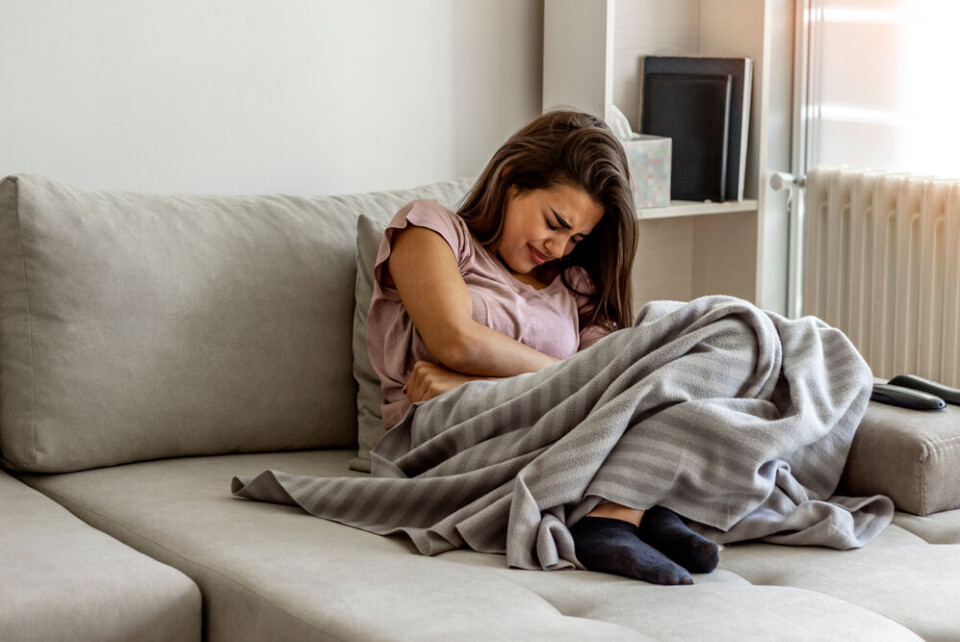-
Festivals, holidays and places to visit in France in April 2025
Including a gladiator battle in a Roman arena, an international garden festival and the Paris marathon
-
Many Société Générale customers to be charged additional fees from April
There is some good news for international banking and instant transfers, however
-
Why gas prices in France are rising in April - and by how much
It comes after six consecutive monthly rises. Try these tips to reduce your bills
Support for ‘promising’ new saliva test for endometriosis in France
Positive early results could lead to the test being 100% reimbursed for eligible sufferers in future, say health authorities

A ‘promising’ new saliva test for endometriosis could bring new hope to suspected sufferers in France, after health authority la Haute Autorité de santé (HAS) said it may open 100% reimbursement to the tool.
Endometriosis is a painful and often debilitating condition in which endometrial tissue - normally only found in the uterus - is found outside the uterus - such as in the ovaries, fallopian tubes, and even the bladder. It causes pain in the pelvis, and anywhere else that it is found.
The condition is thought to affect around one in 10 women (there are around two million confirmed cases in France) and can cause problems with fertility, menstruation, sexual health, and digestion, as well as severe fatigue. The impact can be such that it may interfere with the sufferer’s ability to live a normal life.
Despite this, it takes seven years to diagnose on average. The new test - called Endotest - would aim to improve this figure.
The HAS said on January 8 that it is considering opening the test to eligible women (those with symptoms), but is still waiting for the result of extra studies that “aim to evaluate its clinical usefulness in everyday practice”.
‘Reliability of 95%’
Developed by the Lyon biotech lab Ziwig, the test has already “shown very good diagnostic performance” in initial evaluations, with a reliability of 95%. Results are returned within a few days.
Founder and chairman of Ziwig, Yahya El Mir, told FranceInfo that the test enables doctors “to get as close as possible to the biological functioning of cells and produce information that cannot be obtained through imaging or surgery, enabling a reliable biological diagnosis”.
The system looks at saliva to pick up biomarkers of the disease. Its use would be intended to avoid recourse to the coelioscopy stage (inserting a tiny camera through the abdominal wall to examine the tissues underneath), which is invasive and carries its own risks.
Assurance maladie reimbursement
If introduced, the new test could be 100% reimbursable by the Assurance maladie, as part of a new ‘innovation’ package.
Women over the age of 18 who are strongly suspected of having endometriosis - and for whom existing medical imaging and clinical exams have produced inconclusive results - could take the test for free. This compares to its private cost in other countries, including Switzerland, where the price is currently €800.
However, full reimbursement would be conditional on taking part in further studies, which would help authorities to evaluate whether the test should be reimbursed permanently.
The HAS considers this cautious introduction and continued evaluations to be necessary before it proceeds to possible 100% reimbursement for everyone.
France formally recognised endometriosis as an official ‘long-term condition (affection longue durée, ALD)’ in 2022 after parliament voted for treatment to be 100% covered by the Assurance maladie.
Just two days later, President Emmanuel Macron announced the launch of a national strategy to combat the illness, including more funding into research, raising awareness, and improving diagnosis rates and treatment plans.
He stated: “It’s not only a ‘women’s problem’. It’s society’s problem.”
Related articles
France formally recognises endometriosis as ‘long-term condition’
President Macron launches French campaign against endometriosis
























